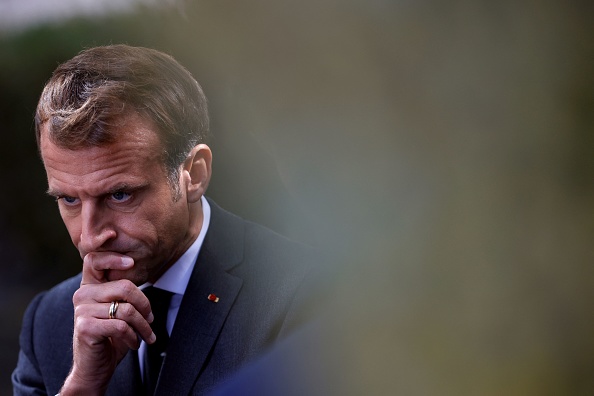France is facing an existential challenge to its relationship with its former colonies in Africa, as its political and military influence continues to wane.
New Senegalese President Bassirou Dioumaye Faye announced last month that France would be forced to close its military bases in Senegal, stating that their presence conflicts with the country’s sovereignty. At the same time, Chad issued a sudden statement terminating its defense cooperation agreement with France, while demanding the withdrawal of French forces from their N’Djamena base.
These developments are part of a series of successive withdrawals that began with Mali, Burkina Faso and Niger in 2022, when public and governmental demands for the expulsion of French troops escalated, sometimes even to the point of severing diplomatic ties, as seen in Niger.
France’s relationship with Africa dates back to the 17th century, when it established its first trading posts in Senegal. By the 20th century, French ambitions had evolved into full-scale colonization, with Paris controlling vast areas of West and Central Africa that spanned more than 11 million sq. km. Although the colonial era formally ended in the 1960s, France maintained its dominance through economic and military policies, the exploitation of resources and the tying of African currencies to the French franc. Yet, this once seemingly unshakable influence has steadily eroded over recent decades.
This decline stems from several factors. First, the emergence of global competitors like China, Russia and Turkiye, which offer economic partnerships without the strings that often come attached to French agreements. Second, the rising cost of French military interventions at a time when France is grappling with economic crises and social unrest. Third, a new generation of African leaders and grassroots movements that reject traditional alliances and demand greater national sovereignty and independence from former colonial powers.
The French military presence in Africa, once a symbol of influence, has now become a source of contention. Operation Serval, launched by France in Mali in 2013, marked a clear turning point. Initiated to combat armed groups in the north of the country, the operation was carried out with insufficient coordination with the Malian army or consideration of the country’s political and social dynamics. For example, the Timbuktu raid of January 2013, conducted without informing the Malian leadership, caused local resentment and painted France as an occupying force rather than a partner.
A new generation of African leaders has become increasingly bold in seeking more diverse partnerships.
Dr. Abdellatif El-Menawy
Instead of stabilizing the region, the French intervention expanded the conflict. Tensions spread from Mali to Niger and Burkina Faso, where France became the target of growing political and popular criticism. Despite the technical superiority of French forces, they failed to defeat armed groups. This failure fueled suspicions that France might not be genuinely seeking to end the conflict, leading to widespread anti-French campaigns in the region.
When Emmanuel Macron assumed the presidency in 2017, he sought to reframe France’s relationship with Africa. Macron visited Mali, advocating for a “new approach” based on partnership. In 2019, Paris faced a major shock when 13 French soldiers were killed in an operation in Mali, prompting Macron to convene a summit with Sahel countries to clarify their stance on the French presence. But public anger against France continued to grow, as Paris failed to deliver tangible results.
In 2020, Malian military leader Assimi Goita ousted the government, adopting an anti-French stance. Instead of reevaluating its policies, Paris mistakenly assumed that the new military council would support its reforms. Later, France proposed “Europeanizing” its military intervention in the Sahel to deflect criticism, but it failed to grasp the profound shifts in the attitudes of African leaders.
The rise of anti-French sentiment in Africa is not a passing phenomenon, but rather reflects a fundamental change in the balance of power. Africans increasingly view France as a symbol of neocolonial exploitation rather than a partner. This sentiment is fueled by policies such as supporting regimes seen as authoritarian or illegitimate and the continued linkage of the CFA franc to the euro, which critics argue undermines African monetary sovereignty.
In response to this mounting rejection, France has launched a new strategy to reevaluate its military and political presence in Africa, with greater emphasis on development aid. However, these measures have not been enough to halt the decline in relations.
A new generation of African leaders and grassroots movements, born in the postcolonial era, has become increasingly bold in rejecting traditional alliances with France and seeking more diverse partnerships. Social media has amplified these voices, making it difficult for Paris to ignore their demands or reimpose its traditional dominance.
Today, France finds itself isolated in a continent that was once its strategic stronghold. Military coups in Mali, Burkina Faso and Niger have demonstrated that geopolitical shifts in Africa are not mere disruptions but the beginning of a new era, in which African nations seek to redefine their relationships with the world.
While Macron has promised that “the era of Francafrique is over,” the decline in French influence is tied to deeper structural issues.
Despite ongoing efforts to repair relations and redirect foreign policy, it appears that Paris is coming to terms with the fact that the age of its uncontested dominance in Africa has passed and it must instead adapt to a new reality shaped by multilateralism and equitable partnerships.
France seems to be losing its foothold in Africa faster than it anticipated. As geopolitical transformations continue to reshape the continent, the question remains: can Paris adapt to these new dynamics or is the era of Francafrique truly over?
- Dr. Abdellatif El-Menawy has covered conflicts worldwide. X: @ALMenawy
Statements, comments or opinions published in this column are of those of the author(s) and do not necessarily reflect the editorial policy of Warsan magazine. Warsan reserves the right to moderate, publish or delete a post without prior consultation with the author(s). To publish your article or your advertisement contact our editorial team at: warsan54@gmail.com


